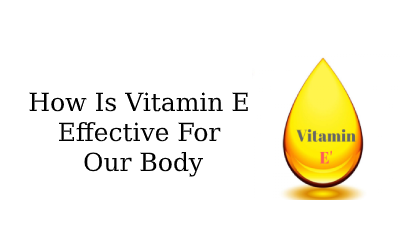If you’ve been searching for a miracle formula for your skin, you must perceive Vitamin E. An important antioxidant naturally present in certain foods like nuts, seeds and leafy greens, it has been a common ingredient in skincare products for years.
Table of Contents
What is vitamin E oil?
Vitamin e is an antibiotic with anti-inflammatory effects that help maintain the health of the skin. Admired as an antioxidant, it benefits the body in a host of other areas, such as strengthening the immune system and maintaining healthy vessels. It can be slathered on the hands or ingested into a capsule.
There are reports that as an antibiotic, vitamin E battles a variety of illnesses, namely Alzheimer’s disease, old age vision loss, as well as certain tumors. Cosmetic racks are filled with goods containing vitamin E that claim to overturn skin damage associated with ageing. The positive effects underlying vitamin E can be seen in pigmentation free skin and metabolites in the seesaw equilibrium. Read on to find out about the drawbacks, safeguards and what are the right products to use.
What are the benefits of Vitamin E oil?
Inside the body, immune cells are substances with an unpaired electron, rendering them to stay unstable. This dysfunctional molecules bind in a manner that can inflict damage to body cells. Cells can be destroyed as the mechanism explodes and you’re left susceptible to disease. Including vitamin E, antioxidants neutralise free radicals that destabilise them, and have many other advantages.
1. Reduces Hyper-pigmentation
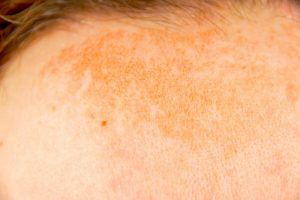
Studies show that the combination of vitamin E and vitamin C can serve as a natural antioxidant and can minimise hyperpigmentation. If you’re curious and love long hours hanging out in the heat, this may be your best new friend!
2. Prevents skin-ageing
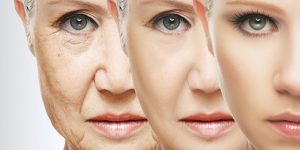
The vitamins in Vitamin E boost distribution in the blood. Vitamin E oil, as well as other vitamin E cosmetic formulations, slow down the skin ageing process. This oil will make your skin look fresh and strong!
3. Improves dry skin conditions
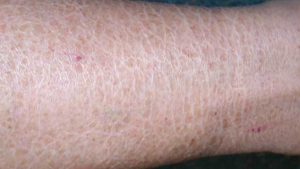
Vitamin E oil functions as a moisturiser for reducing dry skin and avoiding it. Research shows vitamin E oil may be useful in the treatment of moderate psoriasis.
4. Helps in the skin healing process
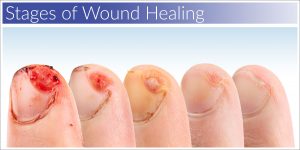
Vitamin E, when added to skin, is commonly believed to help improve healing and minimise scarring. Although a few experiments have been done to affirm this, the vast body of evidence suggests that vitamin E is not making skin wounds recover quicker.
5. Helps to reduce stretch marks
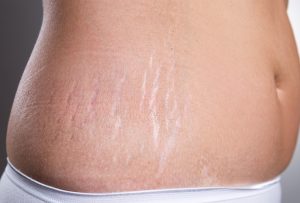
A topical treatment of vitamin E promotes healthy skin cell development and revitalises cell healing to better repair and remove new acne marks. To eliminate stretch marks and relieve itchiness, pick moisturising oil or belly butter containing vitamin E and massage it directly into areas that are vulnerable to stretch marks everyday.
6. Promotes hair growth

Vitamin E can also promote a healthy hair shaft, as it has strong antioxidant properties that will help sustain hair growth moving. The antibacterial activity of the vitamin may help lower the antioxidant activities and immune cells that lead an individual’s scalp to decompose the hair follicle layers.
7. Helps the body

Vitamin E is an ingredient which is fat-soluble present in many foods. It works as an antioxidant throughout the body, attempting to protect the tissues and organs from the destruction that free radicals induce. Free radicals are substances that construct when our bodies transform the food that we eat into energy.
How To Apply/Consume Vitamin E Oil?
Do a skin test only at back of the palm before utilising Vitamin E oil to your face. Expect to wait 24 hours. If you don’t feel scratchy, dry or red on the layer, you can implement it to your face.
If pure vitamin E oil is used, take these steps before spreading it to your face:
- Wash your hands, and pat dry, softly. Cleaning is indeed your skincare regimen’s first and perhaps the most important move.
- Add a nice warm/hot towel, and place it 2-3 minutes around your forehead. This will encourage easier opening of your pores and soaking in the oil.
- Carry the oil to a pea-sized volume. Kindly frot the oil with your fingertips onto your palm. Don’t be too hard on the face.
- You should keep the oil up overnight, if you do have dry skin. If you’re susceptible to clogged pores or the skin is irritated, wash it off after 15 minutes.
- When you intend to add the oil to the entire body, please ensure that it doesn’t touch your skin. You want to enjoy the advantages of oil on your hands, not smear your pants!
- The oil is oily with vitamin E. It could ruin the sheets and pillows. Place a fluffy towel over the pillow to prevent smudging, if you want to keep it overnight.
- Bedtime is perfect for use as the oil doesn’t encourage makeup to last long hours. It can make the skin seem greasy, too.
- Post use; please ensure to wash your hands properly to prevent them getting greasy and slick.
What Are The Best Vitamin E Oil/Cream Products To Buy?
1. Natural & Organic Vitamin E Oil For Your Face & Skin
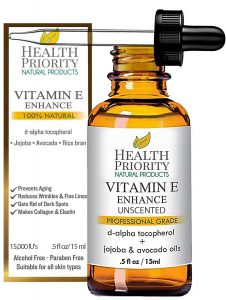
Get these from Amazon store at $19.97
Review- 4.5 stars
2. The Vitamin E Cleanser from the Body Shop
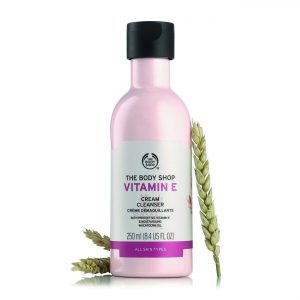
- With a smooth and velvety brush, skin feels hydrated and supple
- Helps to lighten the presence of fine lines and wrinkles
- Reduces the presence of skin abnormalities
Get this cleanser from Amazon store at $21.13
Review- 4.5 stars
3. JASON Age Renewal Vitamin E skin moisturiser
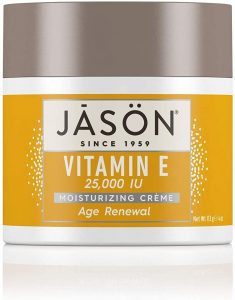
- Provides rich, strong moisture to reduce the obvious symptoms of skin ageing.
- Holds oil from oxidising, hardening & closing pores in the skin.
- Formulated with lanolin and vitamin E to replenish and preserve moisture intensely, forming a velvety barrier to the moisture.
Get this amazing product from Amazon store for $9.29
Review- 4.5 stars
What to consider in labels while selecting vitamin e oil?
1. How much do I need?
Depends on your age, how much vitamin E you need each day. The average daily recommended quantities are always given in milligrammes.
As per the National Institutes of Health, teenagers, adults and pregnant women can eat about 15 milligrammes ( mg) per day. Women who are engaged in breastfeeding require about 19 milligrams of vitamin e oil. The normal intake of infants, babies and children needs fewer vitamins E.
Many people living in places where there is a good food source get adequate vitamin E from fruit. People with severe conditions affecting their capacity to ingest or absorb fat can require more vitamin E. Cystic fibrosis and Crohn’s disease are among these diseases. Supplements will benefit some individuals and those worried about vitamin E consumption. Vitamin E is an ingredient in several supplements made from multivitamins and minerals.
2. Medical Interactions
Certain cholesterol-lowering prescriptions can overlap with taking vitamin E supplementation. It may also decrease the potency of cancer chemotherapy and radiation therapies. Vitamin E supplementation can also interfere with warfarin (Coumadin), a medication used to reduce blood coagulation.
Speak to your doctor about how you use vitamin E supplements before you take them, particularly if you’ve any other health problems.

